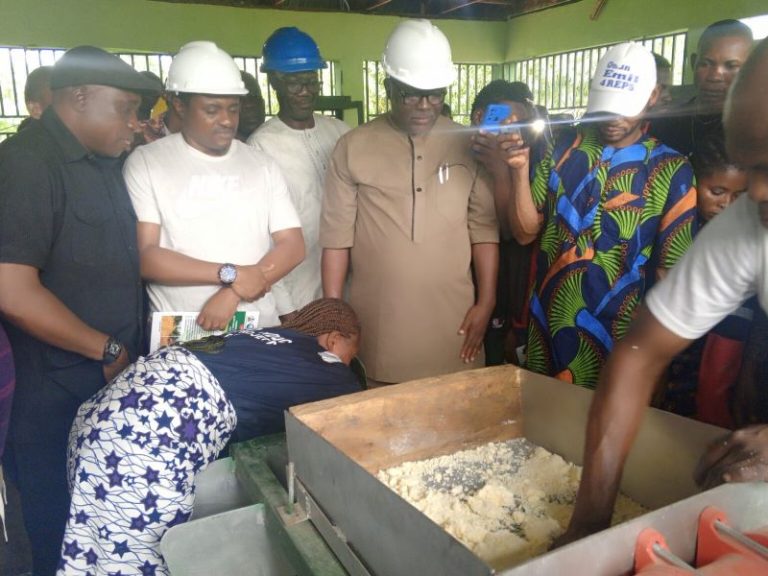The Cross River State Commissioner for Agriculture and Irrigation Development, Mr. Johnson Ebokpo, announced that the newly established eight-metric-ton cassava processing mill in Idoma community will create 1,000 direct jobs.
Ebokpo made this statement during the inauguration of the plant on Thursday in Idoma, Biase Local Government Area of the state.
He emphasized the project’s significance for community development and revealed that the government plans to replicate this model in other local government areas.
The initiative, which is part of the Livelihood Improvement Family Enterprise for Niger Delta (LIFE-ND) project, also includes a 1.3 km farm road, a mini-bridge, and 15 hectares of cultivated cassava farmland.
Ebokpo described the project as an integrated approach to community development, noting that development should extend beyond just food production.
According to him, the community requires road access, flood control, and value addition facilities.
“With these facilities, the community will be kept busy all year round. As the cluster produces cassava, another group of incubates trained to process it will continue the work,” he said.
The National Project Coordinator, Dr. Abiodun Sanni stated that the project aims to curb youth restiveness and empower women through integrated agricultural infrastructure.
“There is a major link here: the 1.3-kilometre access earth farm road leads to the mini bridge, which in turn connects to the eight-metric ton cassava processing mill and the 15 hectares of cassava plantation for incubatees of the project,” Sanni explained.
The Paramount Ruler of Idoma, Steve Omori, praised the establishment of the project.
Omori recounted how the International Fund for Agricultural Development (IFAD) built classroom blocks in the community, which ended their children’s need to travel to other communities to write the West African Senior School Certificate Examination.
He assured that the community would protect the new cassava mill just as they protected the classroom blocks constructed by IFAD in 2010.
One of the project’s beneficiaries, Ms. Comfort Anthony, expressed her gratitude, noting significant improvements in their livelihoods due to the training and resources provided.
The LIFE-ND project in Idoma has trained 59 participants, with 15 receiving farmlands for cassava cultivation using high-yield, disease-resistant TME 419 cassava stems.


